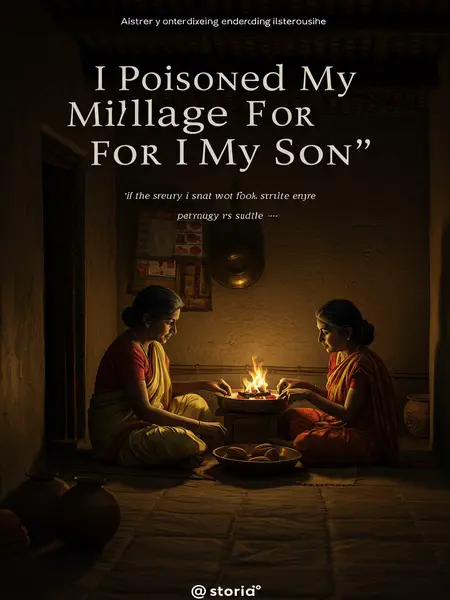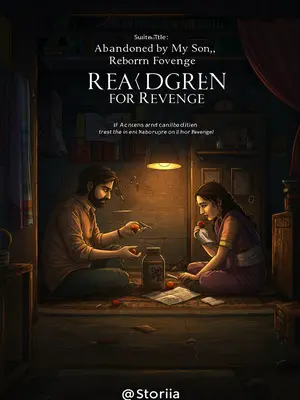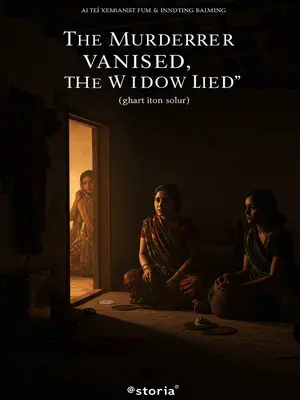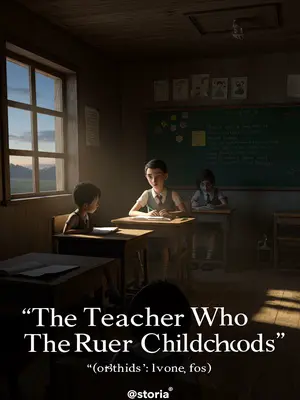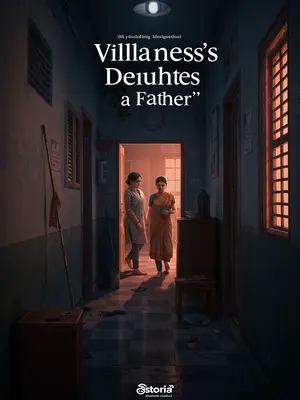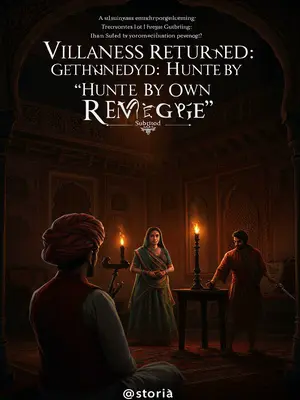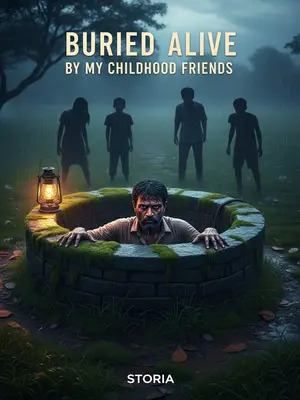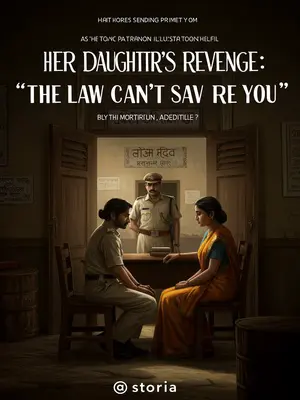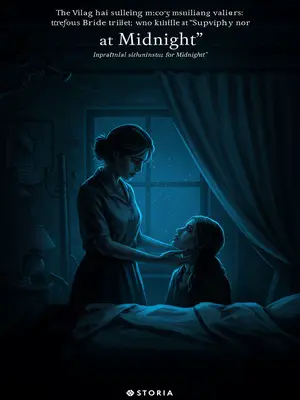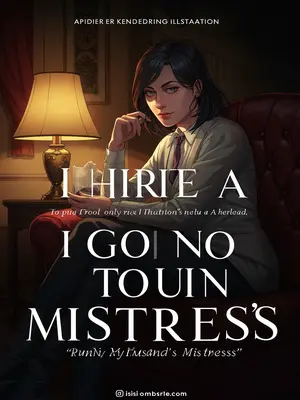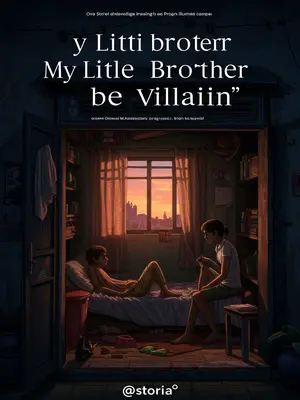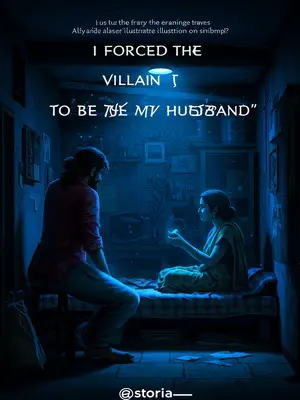Chapter 4: Meera Ma’am and the Birthday
Because I was a heinous criminal, my handcuffs stayed on, and everyone at the station treated me with disgust.
Constables whispered behind my back, calling me mad, evil, a disgrace to my family’s name. Even the chaiwala, usually chatty, looked away when I passed. It was as if my touch could curse them, too.
No one wanted to help me bathe—except Meera Ma’am.
She arrived quietly, carrying a spare towel and a bar of Lifebuoy soap. The other women in the station sneered, making no move to help. The water in the bucket was lukewarm, but she didn’t complain.
She seemed numb, her hands moving quickly as she scrubbed me clean from head to toe.
She worked in silence, pouring water over my hair, gently rubbing my back where the filth had dried. Her hands, so familiar from school, now moved mechanically, almost as if trying to wash away more than just the dirt.
Watching her, I sneered, forcing a smile:
I tried to make a joke, but my voice came out rough. “Meera Ma’am, ab bhi wahi purani aadat? Sabka bhala sochna?”
"Ma’am, still so nosy?"
The words were meant to sting, but she didn’t react. She wrung out the towel, her face unreadable.
Meera Ma’am said nothing, just kept quietly wiping me down.
A heavy silence settled between us, filled only by the sound of water dripping onto the concrete.
But a few female cleaners nearby couldn’t stand it, glaring at me with open hatred:
They gathered at the door, arms folded, eyes narrowed. One whispered loudly to another, ensuring I could hear every word.
"Meera Ma’am, why bother with this ungrateful little beast? People like him never remember kindness. He could die a hundred times and it wouldn’t be enough!"
Their words were acid, meant to burn. “Aise logon ko toh zinda jalana chahiye,” another muttered.
"Exactly, let him rot in his own filth!"
One woman spat on the floor, as if to rid herself of my presence. The others laughed, their scorn thick as the stench that clung to me.
I thought Meera Ma’am would ignore their scorn, but to my surprise, she threw her towel to the floor.
The sudden movement silenced everyone. Her eyes flashed—fierce, unyielding for the first time.
Her always gentle face showed rare anger:
Her jaw clenched, nostrils flaring as she faced them down. “Bas, ab aur nahi,” her expression said.
"Has the case been closed?"
Her voice was sharp, cutting through the chatter. The women looked confused, not expecting to be questioned.
"What?"
One cleaner blinked, caught off guard.
"I asked, has the case been closed?"
Meera Ma’am’s tone left no room for argument. She stepped forward, her saree brushing the floor with authority.
The women looked at each other, not understanding.
They shuffled their feet, glancing at the senior constable for help.
Meera Ma’am continued:
Her voice rose, echoing off the tiled walls. “Yeh police station hai, bazaar nahi. Kanoon sabke liye hai.”
"You work at a police station. Don’t you know the most basic rules? Even if my student is guilty, the law will judge him. It’s not your place to gossip."
Her words hung in the air, heavy with unspoken accusation. The women looked away, shame and anger warring on their faces.
There was a brief silence, then mocking laughter, as if they were looking at a madwoman.
One snorted, turning to her friends. “Teacher hai na, samajhti kya hai khud ko?”
"What, I thought she was normal, but she’s just another idiot."
Their laughter grew, but Meera Ma’am didn’t flinch. She stared them down, daring them to argue.
"Forget it, don’t bother with her. She doesn’t appreciate your help anyway."
The group drifted away, muttering darkly. The room was suddenly quiet, just the sound of water sloshing in the bucket.
"Just a busybody. Who ever heard of a teacher raising a student like that?"
The last words faded as the women disappeared down the hall, their sandals slapping against the floor.
They rolled their eyes and left.
Only Meera Ma’am and I remained, the silence thickening between us.
I looked up at the back of Meera Ma’am’s head, about to say something sarcastic.
The words caught in my throat. I watched her hands, trembling slightly as she reached for her hair.
But she quietly walked behind me, her slender fingers combing through my hair. The little floral hair tie she always wore on her wrist was deftly tied into my hair.
Her hands trembled as she braided my hair, just like she’d done before every board exam. The touch was gentle, almost motherly. For a moment, I remembered sitting in class as she tied back my hair before an exam, wishing me luck with a quiet smile. Her fingers lingered, soft and warm.
She ignored my attitude:
She hummed an old lullaby under her breath, the tune floating through the air. The weight of my guilt grew heavier with each note.
"A teacher for a day is like a parent for life. Whether you acknowledge me or not, with things ending up like this, it’s my fault for not teaching you well."
Her words were soft, but they struck deep. The idea that she blamed herself—when all the blame belonged to me—made my chest ache.
There wasn’t much time left for my bath. She kept talking, all about trivial school matters—the smallest details.
She mentioned the time I’d written the school anthem on the blackboard in perfect Hindi, the time I’d helped pick up the torn pages of a classmate’s book during the rains. Her voice was light, almost wistful.
She even remembered how I’d saved a dying neem sapling in biology class.
“Woh neem ka ped ab bhi khada hai, Rohan,” she whispered. “Usne toh jeena seekh liya. Tu kyun nahi seekh paaya?”
So annoying.
I tried to scowl, but the ache in my chest wouldn’t go away.
"Rohan, time’s up."
A police officer called from the door.
The spell broke. I stood, hair still damp, towel clutched in one hand.
She stopped combing my hair.
Her hands fell to her sides. The silence returned, heavy and final.
Once again, I walked toward judgment, cold steel biting my wrists.
The handcuffs clicked shut, pinching my skin. The corridor was long and echoing, every step a drumbeat of finality.
"Rohan."
Meera Ma’am suddenly called after me:
I hesitated, not daring to look back. Her voice was gentle, trembling.
"The teacher has one last thing to say."
The words floated through the corridor, touching something deep inside me.
I didn’t stop, thinking how annoying she was—here I was about to die, and she still wanted to nag.
I rolled my eyes, but my heart thudded painfully against my ribs.
"Happy birthday."
My body stiffened.
The words echoed down the hall, catching me off guard. I hadn’t realised what day it was—my eighteenth birthday.
"Rohan, the teacher wishes you a happy eighteenth birthday."
She pressed a toffee into my palm, the kind she used to hand out after morning assembly. Her voice was soft, full of love and sorrow. For the first time in years, I wanted to turn back, to run to her, to beg her to forgive me.
That gentle voice, full of warmth and the passage of years, pierced straight through me like a blade.
The pain was sharp, cleansing. For a moment, I remembered being a child—before the darkness, before the blood.
The officer escorting me paused, glancing at me strangely.
He shifted awkwardly, unsure what to say. His own eyes glistened, just for a second.
"Such a good teacher—how did she end up with a student like you? Truly baffling."
He shook his head, as if trying to puzzle out the answer. I kept my gaze fixed on the floor.
I ignored his muttering. Only when warm drops splattered onto the back of my hand did I realise I was crying.
The tears fell silently, mixing with the last traces of soap and filth. I tried to wipe them away, but they kept coming.
I closed my eyes, mocking myself silently.
For the first time, I felt truly helpless. No clever words, no cold logic could protect me now.
Looks like I lost after all.
The realisation burned—this, not the crowd or the police, was my defeat.
The soft approach really works.
A bitter smile twisted my lips. Meera Ma’am, as always, had known just what to say.
